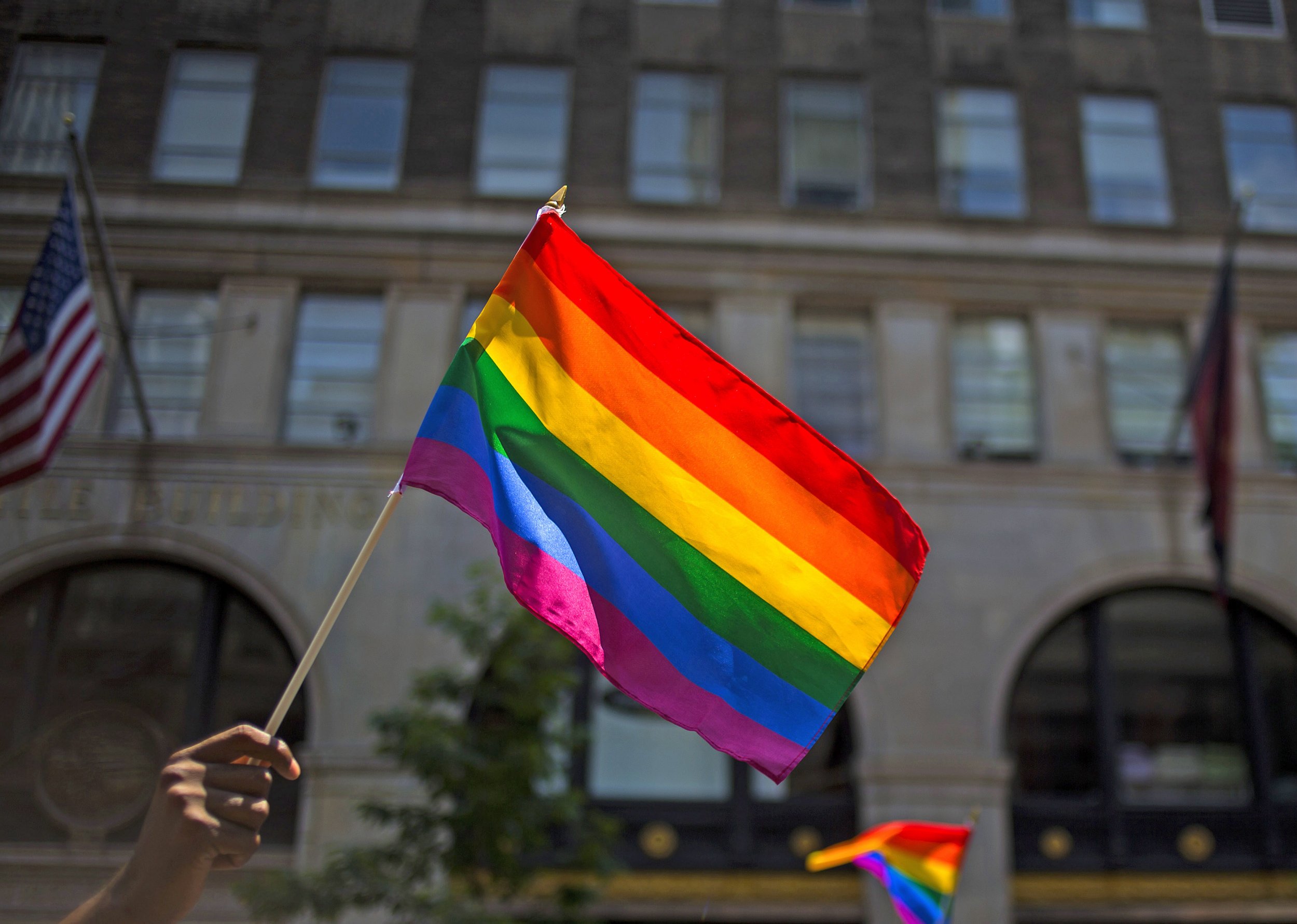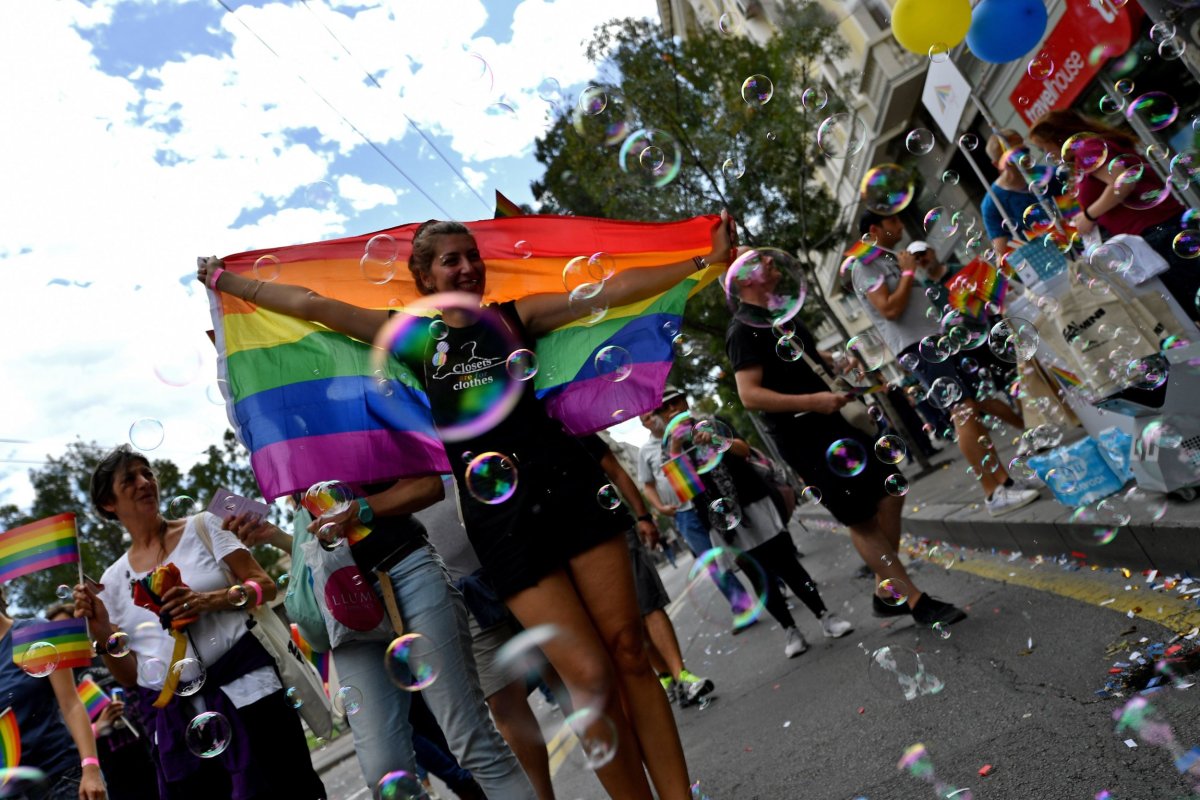
Recently, scientists announced that they found some genes that might be associated with sexual orientation and a biological explanation for the reason gay men tend to have older brothers.
But the field of sexual orientation research is far broader and more complicated than two studies—and Lisa Diamond, a psychologist and sexual orientation researcher at the University of Utah, knows that better than most. She spoke with Newsweek about what she and her colleagues in the field know—and what they don't—about how a person's sexual orientation might form.
This interview has been condensed and lightly edited.
What do we actually know? How much of a person's sexual orientation can be chalked up to biology?
Probably the strongest current evidence is for genetic contributions—but that doesn't mean we've found a gene. All geneticists know that no complex human behaviors are determined by single genes. There was a lot of research in the '90s where people were hoping to find a genetic marker; that didn't go too well. The current evidence really focuses on twin studies, and these studies suggest that the heritability of sexual orientation ranges between 30 and 40 percent.
Heritability is not about a person; heritability is always about a population. So if we look at the population of Americans and all of their sexual orientations, the estimate of 30 to 40 percent means that amount of the person to person variation in sexual orientation is due to genetic factors. If sexual orientation was completely governed by genes, then heritability would be 100 percent. In other words, genetics raises the chances of you being gay, but it doesn't finish the job. There is clearly something non-genetic going on.
What is that something non-genetic?
We've looked at a bunch of things, but we haven't been able to nail it down. There has been interest in the fraternal birth order effect, the fetal environment, the hormonal character of the placenta, the way levels of maternal stress may influence the fetal environment and may change the hormonal milieu, but there's been no reliable evidence. The one thing that we reliably know is that your family did not cause this. A lot of parents worry they may have influenced their child's sexual orientation, but we have been able to rule out that part of the environment. Everything else is up for grabs.

Are the biological causes of sexual orientation different for men than they are for women?
The heritability estimates tend to be higher for men than those for women, though we don't know why that's the case. It's possible that it's a very different phenomenon for men than it is for women with different causes, different developmental programs. Sexuality is something for which men and women are very, very different. Puberty occurs differently, the hormonal changes of puberty are different.
This is an axis of human nature that is sexually dimorphic, that bears a female version and a male version. That might also extend to sexual orientation. However, there's also been more research done on the biology of men's sexual orientation than for women's. Like a lot of other fields, historically there was a lot more research on men than on women. A lot of the early research going on in the '70s and '80s found research participants at bars and community centers. At the time, those settings tended to have more men than women.
Are there any major misconceptions around sexual orientation or this field of research?
Well, the other systematic bias that was introduced in the research was to focus on exclusively gay individuals. That has led, over the years, to this feeling that bisexuality is rare and does not exist. But we now have really powerful population data—random representative samples—of individuals in America and in many other countries that consistently show that the majority of individuals with same-sex attractions also have opposite-sex attractions, to varying degrees. Bisexuality is actually more common than exclusive gay or lesbian sexuality. And in fact, the heritability of bisexuality might be greater than the heritability of same-sex sexuality.
What's the biggest misconception about biological causes of sexual orientation?
Some people think that if something is biologically influenced, it necessarily expresses itself early. That's just a bias that we have, it's not true. Schizophrenia, for example, is a very heritable trait and it often doesn't express itself until its early 20s. So the simple fact that something has biological influences doesn't mean it's early developing and doesn't mean that its expression won't change. There is a capacity for a change in the expression of sexual orientation at any point in the lifespan.
I remember I gave a talk at a high school, and the parents asked, "At what age I will know for sure whether my kid is gay? If they don't turn out to be gay by 18, can I pretty much know, okay, they aren't gay?" And I said," Unfortunately, I can't tell you that. I can't guarantee you that at age 18, if you child hasn't expressed same-sex attractions that they won't in the future—and frankly ma'am, I can't guarantee you that you are not going to end up gay either." I think people used to think that your sexual orientation was kind of fully formed within you, like a little kernel as soon as you were born and then it was just a matter of it unfolding. That doesn't appear to be the case. At any point in the lifespan, different aspects of your sexual phenotype appear capable of expressing themselves.
Uncommon Knowledge
Newsweek is committed to challenging conventional wisdom and finding connections in the search for common ground.
Newsweek is committed to challenging conventional wisdom and finding connections in the search for common ground.
About the writer
Kate Sheridan is a science writer. She's previously written for STAT, Hakai Magazine, the Montreal Gazette, and other digital and ... Read more
To read how Newsweek uses AI as a newsroom tool, Click here.








